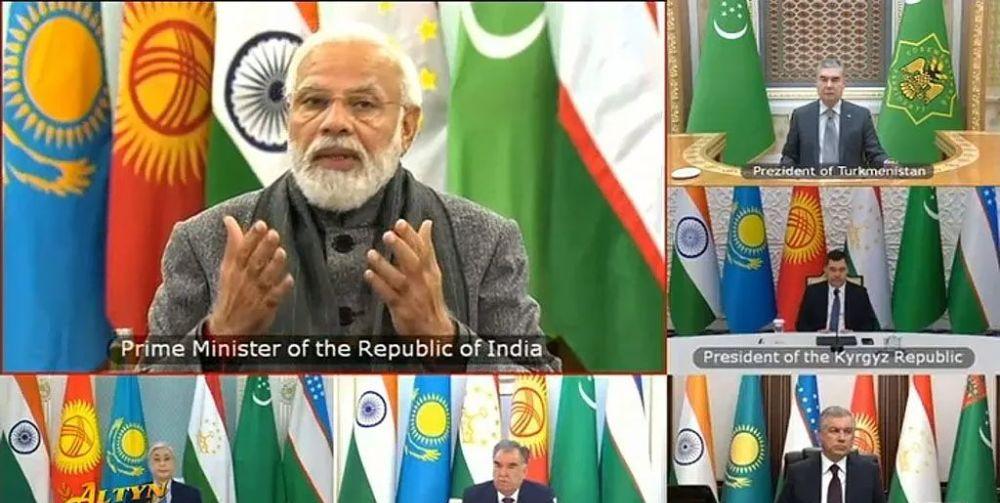India is embroiled in a "must-lose race"? What exactly did the Indo-Central Asia summit say?
The India-Central Asia Online Summit was held, and the construction of a regional security and connectivity system was at its beginning, and the Indian elite still had differences on the economic and strategic central Asia
India and the five Central Asian countries held the first "India-Central Asia Summit" on January 27. Affected by the epidemic in India, the meeting was changed to online. The outcome of the summit can be summarized as "one, two and three": First, further improve the institutional framework. The leaders welcomed the establishment of the India-Central Asia Centre in New Delhi and supported the countries concerned in promoting the establishment of an institutionalized framework for cooperation at the regional level. In the future, not only will leaders' summits be held on a regular basis, but annual ministerial meetings on diplomacy, trade, culture and security will be launched to strengthen cooperation between all parties in related fields. The second is to focus on two key areas: regional security and connectivity. In the field of security, the changes in the situation in Afghanistan are related to the interests of all participants, and India intends to cooperate with Central Asian countries to deal with changes in the situation in Afghanistan and prevent the spillover of security risks. In the field of connectivity, India emphasizes the fulcrum role of Chabahar Port and intends to cooperate within the framework of strengthening the International North-South Transport Corridor (INSTC) and the Ashgabat Agreement on the International Transport and Transit Corridor. It is worth noting that the summit agreed to include the port of Bahi in Turkmenistan within the framework of the INSTC to facilitate India's further access to oil and gas resources in the hinterland of the Caspian Sea. The third is to set up three working groups to specifically implement and promote the relevant work. Under the institutional framework and guidance of the focus areas, the leaders of the participating countries agreed to establish the "Joint Working Group on Afghanistan", the "Joint Working Group on the Port of Chabahar" and the "IT/ITES Working Group". Since China and India have held Central Asian summits successively, Indian experts and media have made comparisons, but their views are seriously divergent. Former Indian Ambassador Amb Narinder Chauhan has a more mainstream view, arguing that the geographical location, rich resource reserves, and unpredictable internal situation in Central Asia make the region highly related to India's strategic interests, but India is already lagging behind in the game with China and Russia in Central Asia and needs to redouble its efforts to catch up. An editorial in the Indian Express pointed out that India's current challenge is to translate the open political will of all parties into concrete and pragmatic results in connectivity and security. Manoj Joshi, a researcher at the Observer Foundation, disagreed, pointing out that The interests of China and India in Central Asia are fundamentally different, and that India should avoid getting involved in "a game that must be lost" with China in Central Asia, but instead project more resources into the Indian Ocean.
——Comprehensive excerpts from The Print, Financial Letters, Hindus, #India#Central Asia##政治 #
